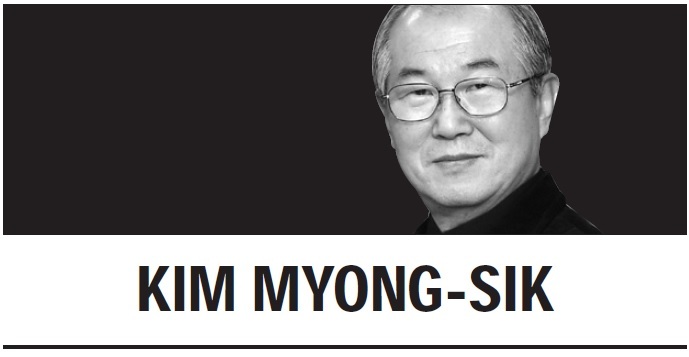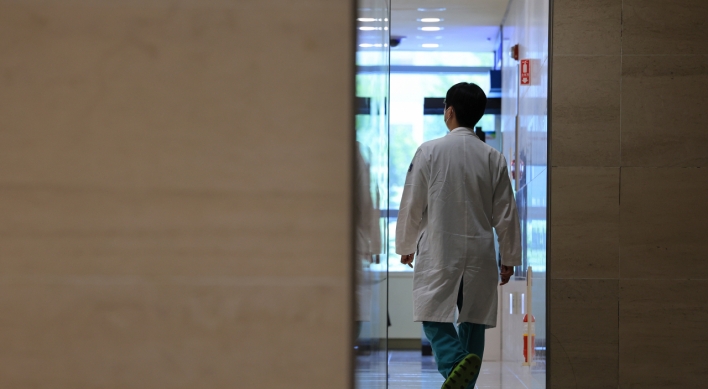[Kim Myong-sik] Yoon stumbles in endeavor to improve China ties
By Korea HeraldPublished : Aug. 11, 2022 - 05:30

Friendly observers surmise that Yoon might have followed President Joe Biden’s objection to Pelosi’s visit to Taiwan, the effect of which provoked China and put the region into unnecessary military tension. Critics argue that Yoon’s excessive attempts not to offend China hurt Korean pride as his leftist predecessor Moon Jae-in did with his humble approach to Beijing leadership.
If she was displeased by Seoul’s apparent snub -- no Korean official receiving her at the airport -- she didn’t show it in her phone conversation with the Korean president. Pelosi demonstrated confidence in the close relationship between Seoul and Washington, making a tour of the Panmunjom Joint Security Area, a symbol of Korea-US solidarity.
President Yoon has every reason to try to improve ties with China 30 years after formal relations were established between the two former adversaries in the Korean War. Commemorative events are being planned for the anniversary later this month, but the two countries have little to celebrate. Mutual cooperation that had once rapidly grown in trade, industry and civic exchanges has turned stagnant as competition grew and mutual respect declined between the two peoples.
Korea has had close contact with four major world powers since the 19th century. While China, Russia and Japan passed through ups and downs, the US alone continued to hold global leadership and remained a friend of South Korea until today. China, which had immense political and cultural influence on Korea for millennia, was a victim of Japanese imperialism and a virtual ally in the Korean independence movement.
After World War II, China became a communist country, and its intervention in the Korean War resulted in Korea remaining a divided country. For decades, anti-communist South Koreans held a grudge against the Chinese and viewed them with disdain. At the same time, a strong friendship was shared with “Free China” on Taiwan -- until the detente era brought the normalization of bilateral relations in 1992.
The way the Republic of China was kicked out of the United Nations and the permanent seat on the Security Council was tragic. Similarly, the ROC Embassy in Seoul was given 24-hour notice by the Korean Foreign Ministry to evacuate its chancery in Myeong-dong one day in August, 30 years ago. Taiwan survived humiliation and achieved economic and democratic development, just as South Korea did.
Deng Xiaoping’s pragmatism set off China’s rise on the global stage, and the big neighboring country became Korea’s largest trading partner while serving as a significant source of labor for Korean industries. The northeastern provinces of China, which have large enclaves of ethnic Koreans, provided the travel route for North Korean refugees heading to South Korea to escape hunger and oppression.
Meanwhile, the increasingly self-assertive China often touched Korean nerves with historical theories that the ancient Korean Goguryeo and Barhae dynasties in the northeastern region were part of China. Chinese official media has added such ridiculous claims of Chinese origin for the Korean traditional attire Hanbok, national side dish Kimchi and even the folk song Arirang.
If these arguments could be set aside as infantile greed to lay hands on everything they covet, they could also be a deliberate move to tighten the Chinese authorities’ control of Korean ethnic communities. Something more resentful happened in Beijing’s reaction to the US and Korea’s deployment of the Terminal High-altitude Air Defense (THAAD) system in South Korea in 2016.
Beijing officials demanded “3 No’s” -- no additional deployment of THAAD batteries, no trilateral military alliance with the US and Japan, and no part in any new US missile defense systems in East Asia -- and Korea’s Moon Jae-in administration tacitly accepted it. President Yoon, who spoke of no binding effect of the 3 No’s after a change of power, perhaps was trying a strategy when handling the two superpowers as rivals upon Pelosi’s brief visit to Seoul.
Ignoring Chinese warnings and large-scale military maneuvers around Taiwan, Pelosi’s special flight landed on the island, where she declared unwavering American support for the democratic government and criticized the human rights situation on the mainland. Xi Jinping must have realized that his show of force at sea and in the air this time only raised the political stature of the US House speaker.
Besides, Xi and his aides may have gotten the wrong message from the new Korean president - his actions during the Pelosi tour might have surprised the Chinese too. If it was a simple diplomatic blunder from a novice president, Yoon now needs to work out a realistic and pragmatic policy beyond the basic line of “security with the US, the economy with China,”
South Koreans’ recently worsening feelings about the Chinese in general (up to 80 percent in the negative) can pose an obstacle. Chinese haughtiness from their perceived rise in national status clashes with Koreans’ pride in their political freedom and economic success. Chinese meddling in current issues such as the US-initiated Indo-Pacific Economic Framework and the “Chip 4” semiconductor supply chain is a disturbing example.
Multiple China experts thoughtfully advise the Yoon administration to be concerned with “minimizing costs” from now on rather than “maximizing effects” that Korea sought in interactions with China over the past three decades. As long as Beijing remains what it is, South Korea cannot but regard the big neighboring country as a minus factor in its global business and national security endeavors. Hence maintaining the pivot to the US is justified.
Only when the Chinese become truly self-confident -- abiding by the international standards of trade and finance, respecting intellectual property rights, without abusing human rights in Xinjiang, Tibet or Hong Kong, or bullying weaker neighbors with military power, and when it exercises its influence for the denuclearization of North Korea -- will we happily count them as a plus factor in our future.
Kim Myong-sik
Kim Myong-sik is a former editorial writer for The Korea Herald and a former managing editor of The Korea Times. - Ed.
-
Articles by Korea Herald








![[Kim Seong-kon] Democracy and the future of South Korea](http://res.heraldm.com/phpwas/restmb_idxmake.php?idx=644&simg=/content/image/2024/04/16/20240416050802_0.jpg&u=)










![[Today’s K-pop] Zico drops snippet of collaboration with Jennie](http://res.heraldm.com/phpwas/restmb_idxmake.php?idx=642&simg=/content/image/2024/04/18/20240418050702_0.jpg&u=)